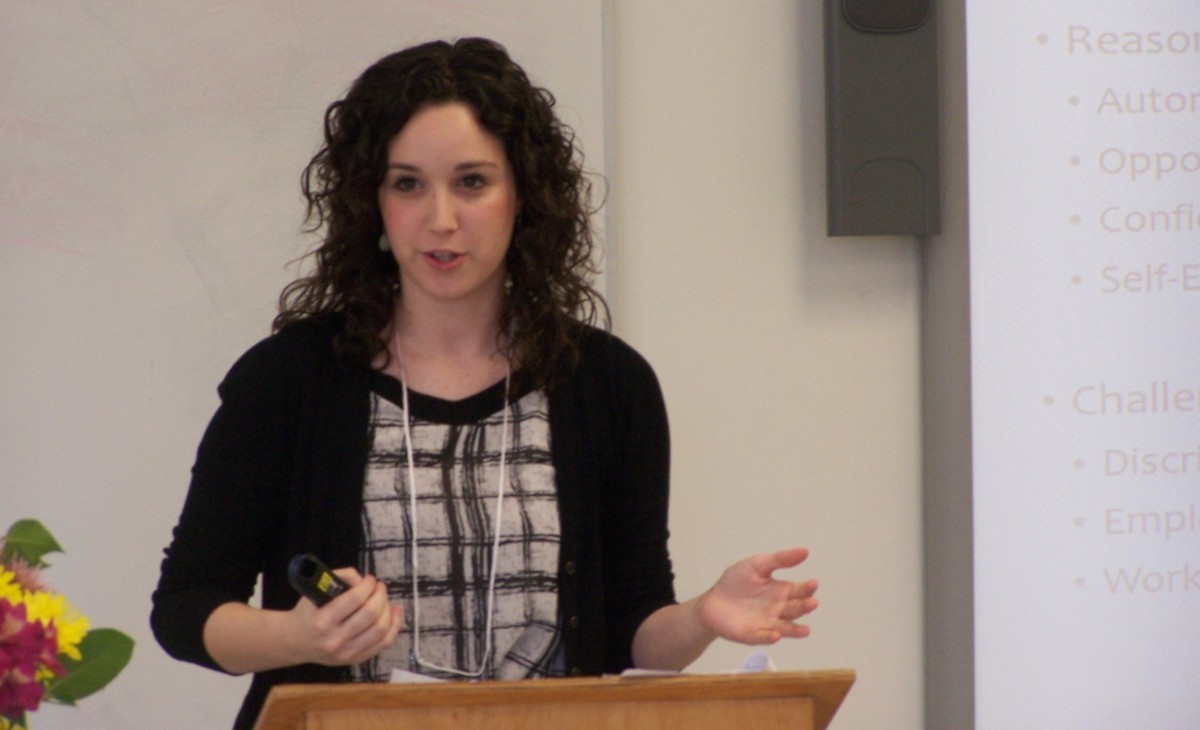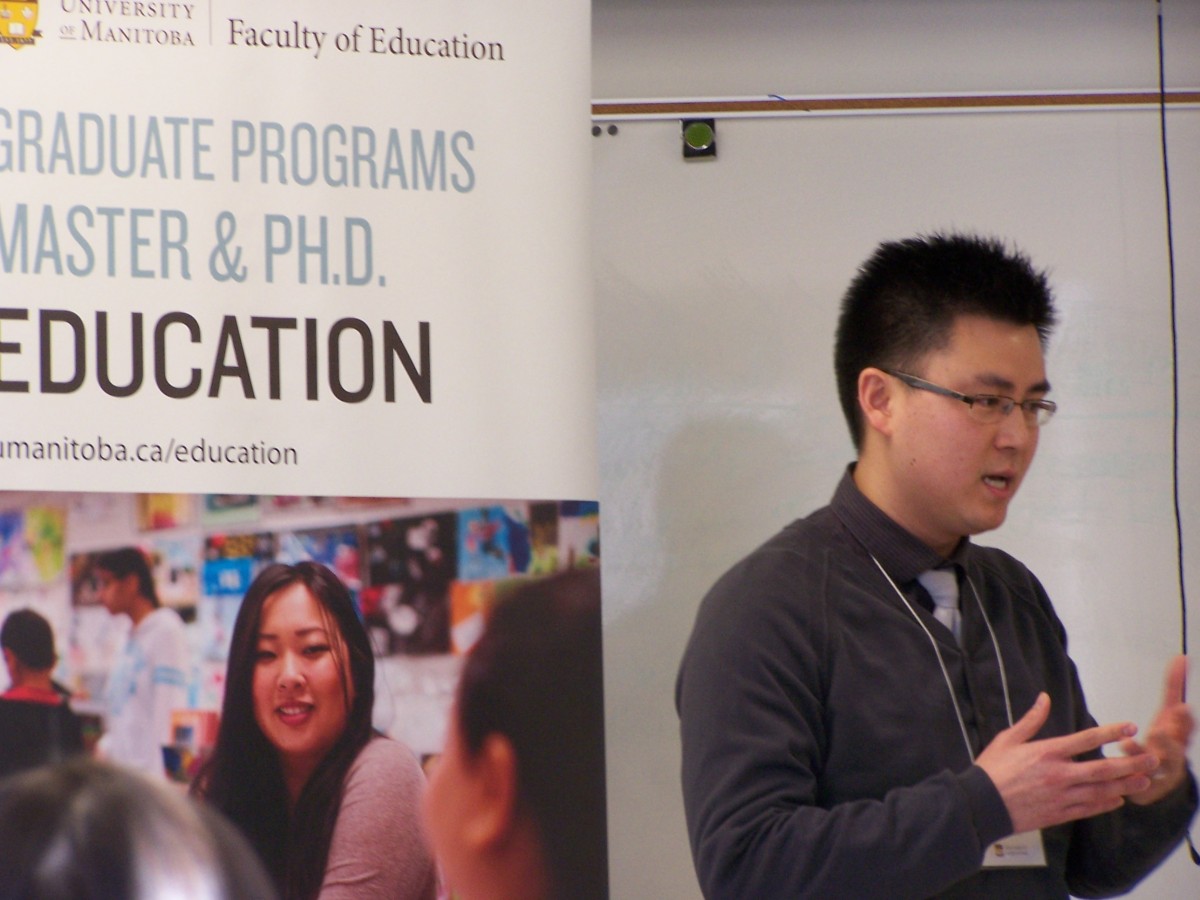
Melanie Baruch presented her research on 'The Business of Therapy' during this year's Graduate Student Symposium.
Graduate Student Symposium succeeds in exploring ‘educational minds of the future’
For first time, graduate students took over organizing event, which was based on five research areas
This year’s Graduate Student Symposium—the 16th annual, in which graduate students in the Faculty of Education present and discuss their research in an academic forum—was a departure from past years in that it was the first time the graduate students themselves took a lead role in the planning. The result was extremely positive, said both participants and guests.
Involving the grad students “empowered them to have an active role and become intimately involved with the event,” said Melanie Baruch, who was both a presenter and a member of the planning committee for the symposium, which took place on March 6 and 7.
The organizing committee, made up of Mahdi Rahimian, Stephanie Yamniuk, Alysha Sloane, Baruch and Julianna Enns, also came up with the innovative theme for this year’s event: “Educational Minds for the Future.”
The theme was based on Howard Gardner’s 5 Minds for the Future (2008). Gardner, a U.S.-based developmental psychologist, is best known for his theories of multiple intelligences. In 5 Minds, he describes the minds for the future, which include: the disciplined mind, the synthesizing mid, the creating mind, the respecting mind and the ethical mind.
The committee organized the two-day event, which included paper presentations and roundtable sessions, around these “mind” themes, based on the topics that were presented. For example, a session on “the creating mind” included a research presentation on Twitter and professional development opportunities for teachers.
In all, presentations were made on a variety of topics and themes, said organizer Yamniuk.
“The presentations went the whole range from discipline focused (science, languages, math) to issues of ethical and respectful practice.”

Presentations at this year’s symposiums covered a range of educational topics and themes. Presenter Lam Nguyen spoke about developing conceptual understanding and probabilistic thinking through tree diagrams.
The symposium is unique, added Dawn Wallin, associate dean of graduate programs for the faculty—because it provides students with the opportunity to present not only completed research but also research that is not fully formed.
“Some students presented conceptual papers, some presented emerging research and others presented completed research studies,” said Wallin.
This year’s participants said the symposium thus allowed them the chance to gain experience and confidence in putting forward their work. Said Yamniuk:
“The symposium is a great way to present your research in a ‘safe’ environment.”
I received lots of questions and feedback on my presentation, which is what I was hoping for,” Yamniuk, who spoke about the role of resilience in understanding the well-being of refugee families, and how they adapt to school in Canada, added.
“Sometimes as a researcher, you are so embedded with your own interpretation of the data, that it’s important to hear from others with different perspectives and experiences,” she added.
Other graduate students who took part said the symposium is a chance to forge connections they may not have otherwise made.
“It provides a space for research oriented individuals to improve their public speaking skills, and connect with other researchers,” said Baruch.
Wallin said both students and guest commented on the quality of the presentations over the two days and the interesting discussions that ensued. Along with formal presentations, the event included several roundtable discussions.
Of the roundtables, Rahimian said that they were both diverse and highly active. As well, he said the amount of knowledge that surfaced was “astonishing” and noted that “people could take away a lot of information for their scholarly or practical purposes depending on their study-work interests.”
A total of 50 guests attended on March 6 and 40 attended on March 7.
Wallin said the opportunity that the symposium presents to students each year is invaluable.
“It is a joy to see M.Ed. and PhD students’ growing sense of confidence and to listen to their emerging scholarship,” she said. “The quality of the event is a tribute to students’ own developing identities, not only as researchers but also to the hard work and dedication of the faculty members who support them.
“This is an important event for our students, and for our Faculty, as the excitement of learning has a way of capturing our imagination.”






